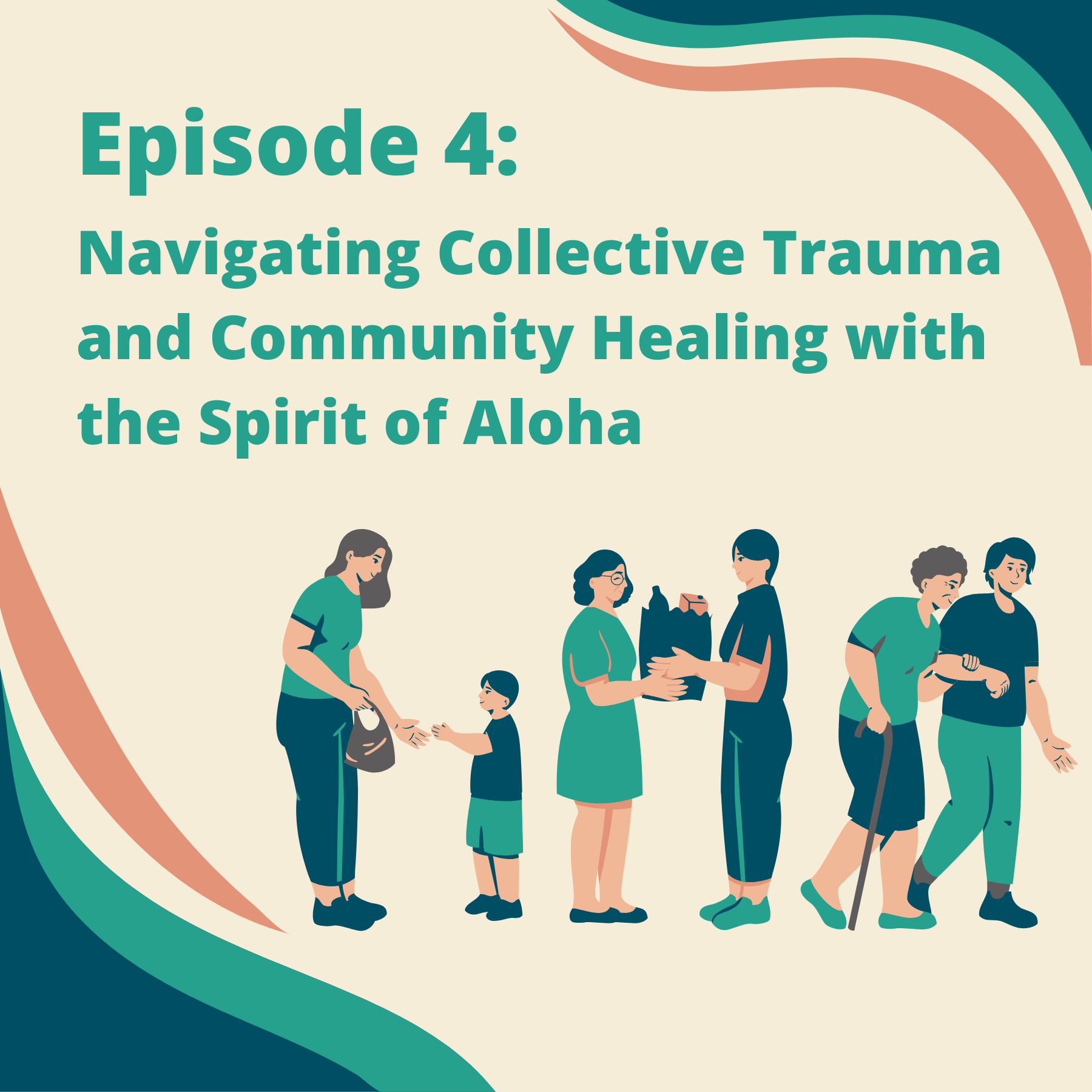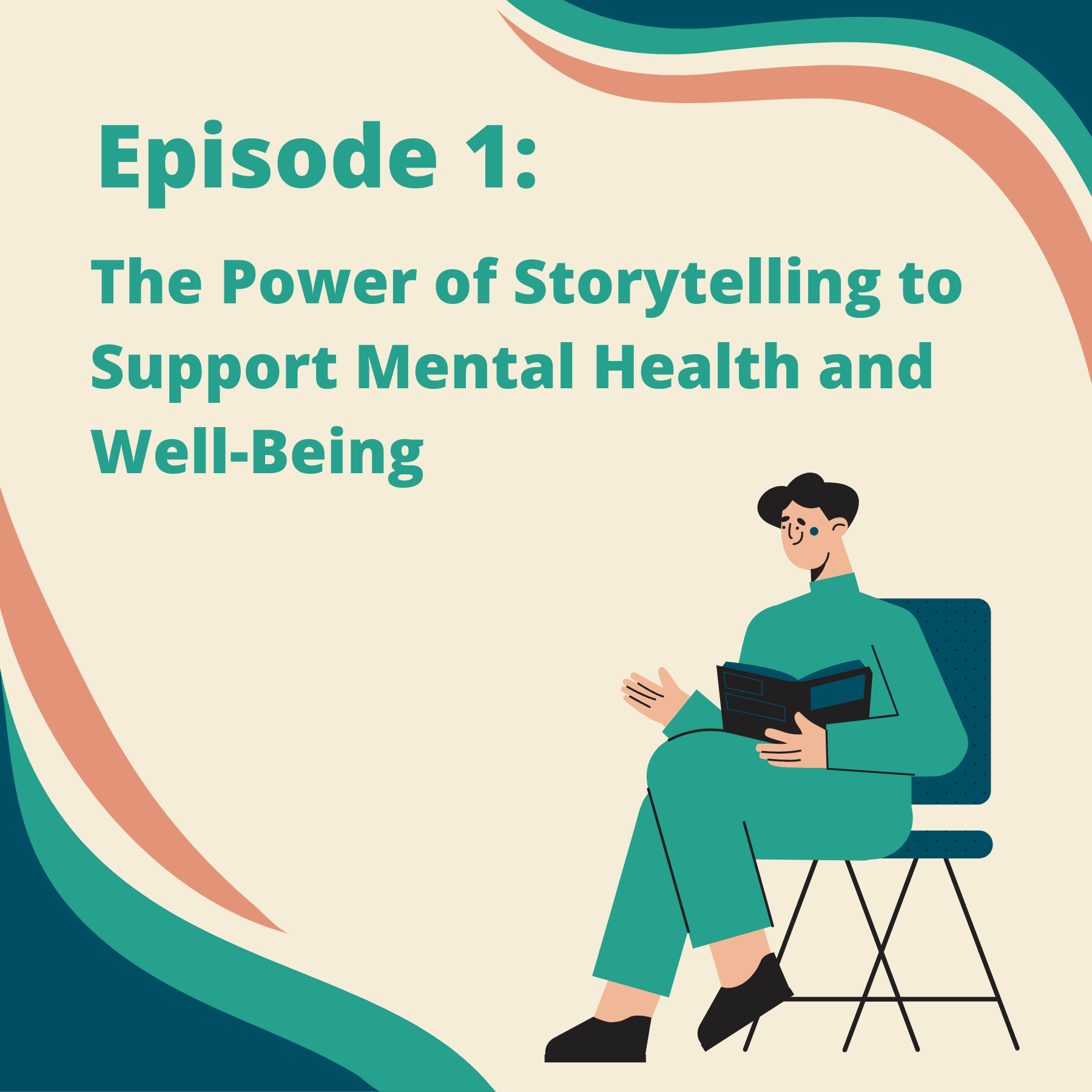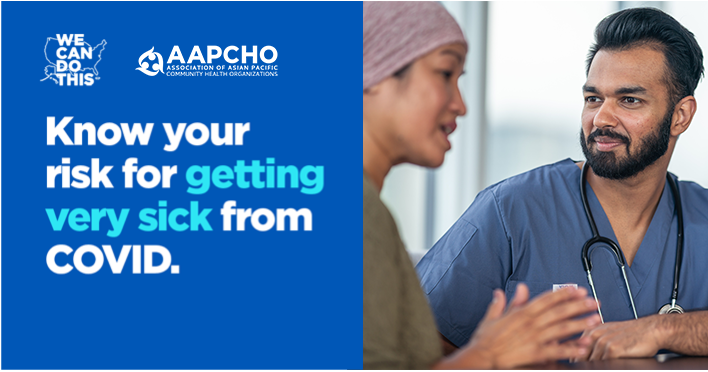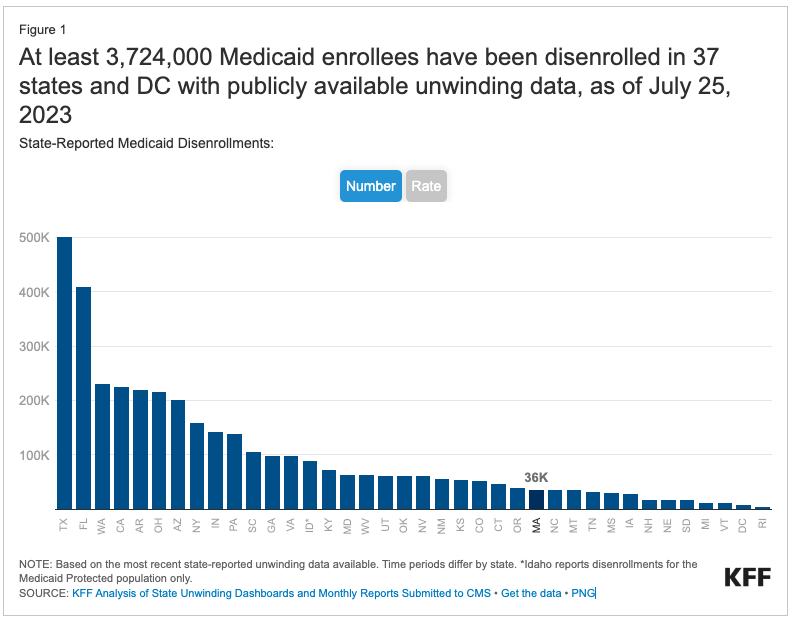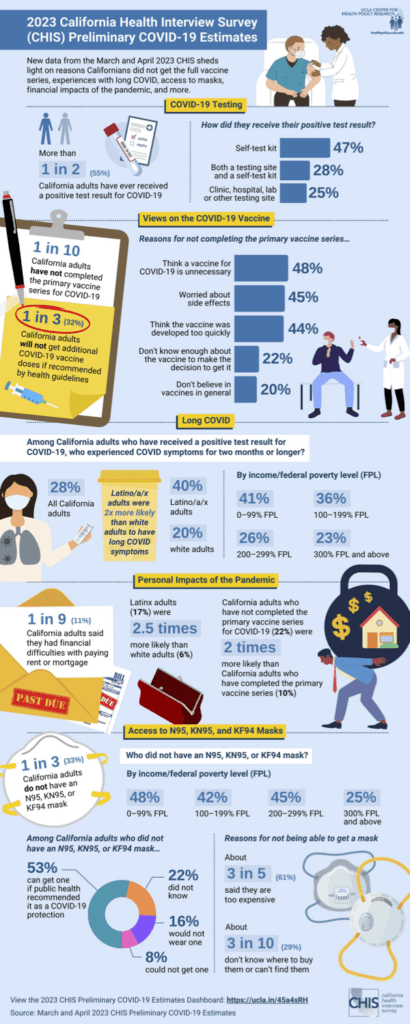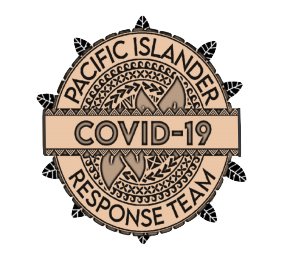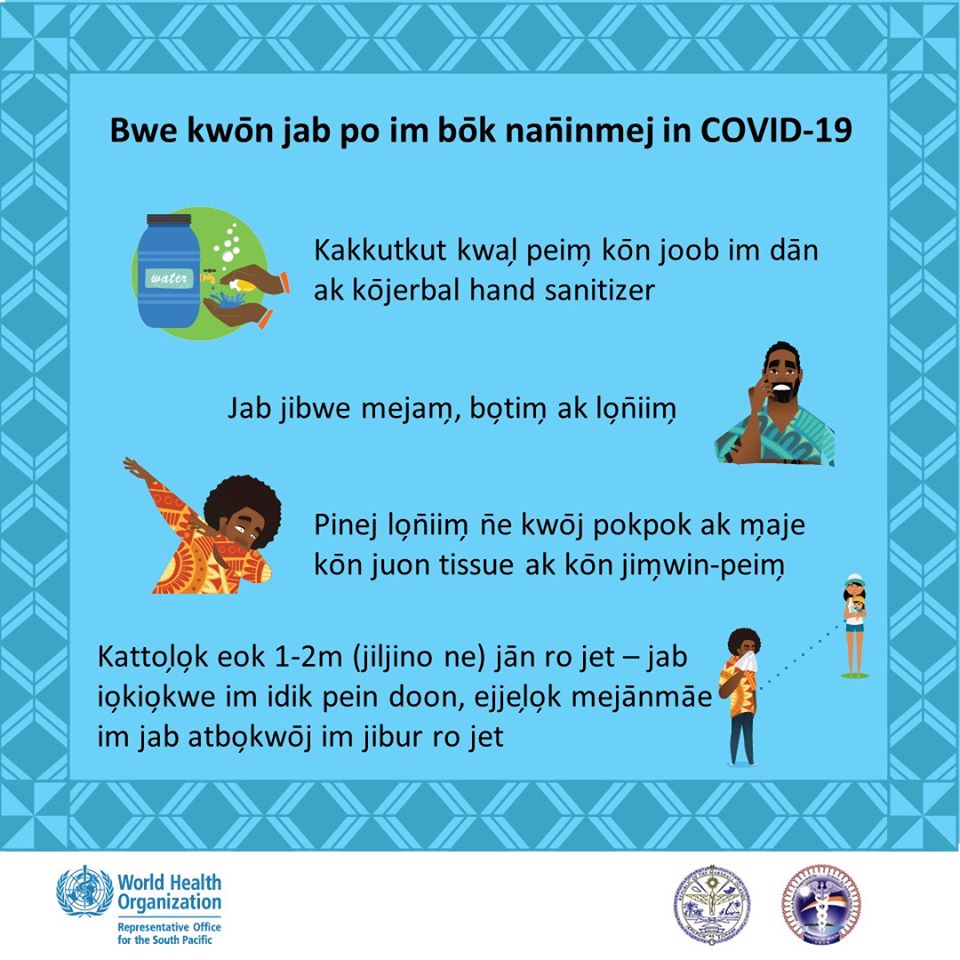COVID-19 Resource Hub
COVID-19 and Mental Health
New Episodes Streaming Now! COVID-19 Impacts on Mental Health Podcast Series
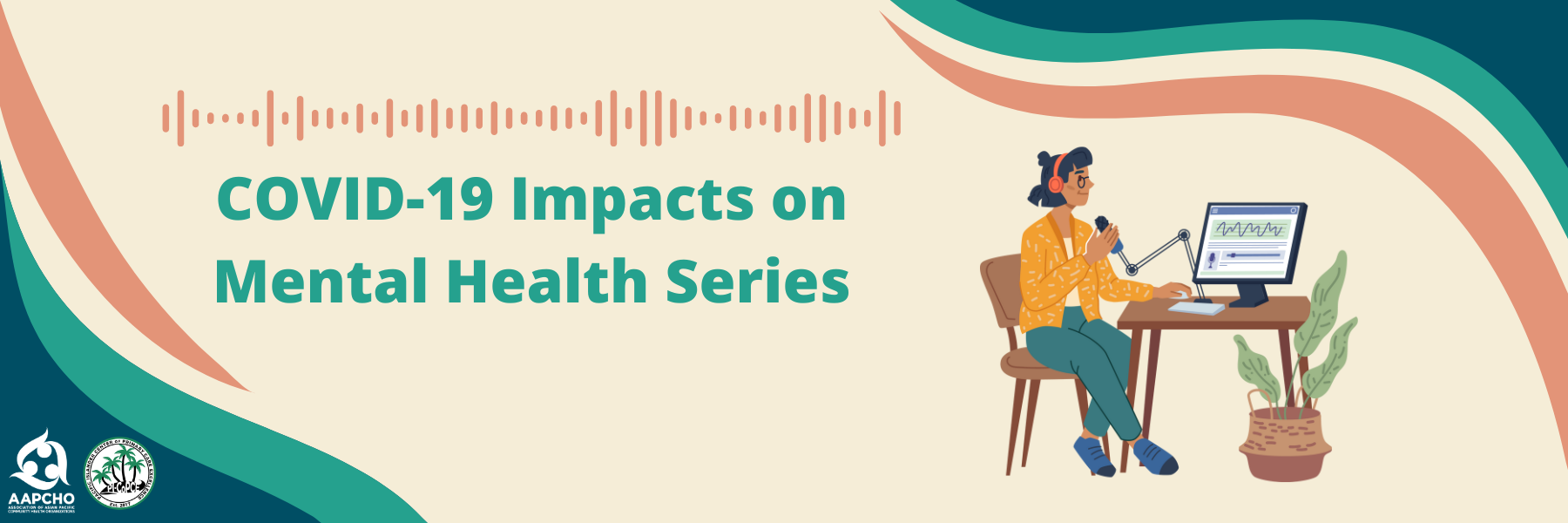
This compelling podcast series features conversations with AAPCHO members and partners focused on the impacts of COVID-19 on mental health among community members, providers, and other health center workforce. We uncover powerful stories and insights that illuminate the challenges, strengths, and progress made to support mental health among Asian American, Native Hawaiian, and Pacific Islanders.
NEW! Episode 8: How We Show Up: Building Hope, Healing, and Self Love Among Youth
Transcript PDF: https://bit.ly/41YCojN
Transcript .txt: https://bit.ly/48t456Q
Episode 7: Strength of “We”: Support of Self and Community Through Dynamic Teamwork
Transcript PDF: https://bit.ly/4ah9gIu
Transcript doc: https://bit.ly/47YeTtu
Episode 6: Finding Balance: Community Care, Family, and Personal Well-Being
Transcript PDF: https://bit.ly/3ujZbdm
Transcript doc: https://bit.ly/40F5mod
Episode 5: Frontline Heroes: Reflections on Community Care, Resilience, and Transparency
Transcript PDF: bit.ly/3rDl2vf
Transcript doc: bit.ly/3rMA1Tw
Episode 4: Navigating Collective Trauma and Community Healing with the Spirit of Aloha
Read the episode transcript: bit.ly/3sSk3HX
Episode 3: Belonging and Community: Mental Health Supports Beyond the Four Walls
Read the episode transcript: bit.ly/3OQo0nN
Episode 2: How Health Centers Can Support Mental Health Providers through Burnout and Beyond
Read the episode transcript: bit.ly/3P7Lg1L
Episode 1: The Power of Storytelling to Support Mental Health and Well-Being During the COVID-19 Pandemic
Read the episode transcript: bit.ly/47AEHvQ
Overall Series Themes
Throughout this series, our guests revealed several recurring themes, experiences, and lessons learned that health centers can operationalize to support their workforce as well as the patients they serve. Across various episodes, we witness the importance of:
Collaborative Support: Reliance on a good support network (family, friends, co-workers, community, etc.) to promote mental health and well-being;
Collective Healing: Giving adequate space and time to heal and process grief by creating safe spaces to share stories and experiences as well as fostering resiliency, empathy, and connection amongst the community;
Culturally Tailored Care: Highlighting the value of multilingual and culturally responsive healthcare services and recognizing that diverse communities require individualized approaches to care;
Empowerment Through Boundaries: Finding balance in personal and work life to prevent burnout. The need for individuals to set boundaries, recognize the strength in sensitivity, and advocate for equitable working conditions;
Adequate Compensation for Emotional Labor: Compensating healthcare providers and other staff members for the added emotional labor of their work that is often left unpaid and unrecognized;
Pathways to Health Careers: Inspiring a new generation of passionate individuals to pursue a career in healthcare and making those pathways to enter the workforce more accessible by providing more entry-level opportunities and reducing structural and institutional disparities that make it harder for minoritized racial and ethnic groups to enter the mental health field; and
Recognizing Privilege: Acknowledging that mental health services are not always easily accessible and that there may be several barriers to seeking support. Addressing the social drivers of health should be the first step in meeting patients’ basic needs, as it sets the foundation for dismantling systemic obstacles and fostering a healthcare environment that prioritizes inclusivity, empowerment, and holistic well-being.
See full episode details and descriptions below.
View the other episodes in the series: https://soundcloud.com/user-207279422
Find alternate ways to access the episodes: https://bit.ly/CHERNResources
This series was brought to you by the COVID-19 and Other Infectious Diseases Health Equity Response Network (CHERN). The CHERN Initiative is funded by the Centers for Disease Control and Prevention and was developed in partnership between AAPCHO and the Pacific Islander Center for Primary Care Excellence (PI-CopCE). To find out more, email us at training@aapcho.org.
Individual Episode Details and Descriptions
NEW! How We Show Up: Building Hope, Healing, and Self Love Among Youth
Transcript PDF: https://bit.ly/41YCojN
Transcript .txt: https://bit.ly/48t456Q
To learn more about Lowell Community Health Center, visit: lchealth.org/home/
To learn more about the Teen Block Program, visit: lchealth.org/health-wellness/healthy-community/teen-block-youth-programs/
To learn more about mental health for AA and NH/PI Youth, check out this report: searac.org/wp-content/uploads/2023/07/SEARAC-Voice-Unheard-2023-Interactive.pdf
This episode features Triana Wilson and Tim Sokhoeun, Community Health Workers with the Teen BLOCK Program at Lowell Community Health Center in Lowell, MA. Triana and Tim reflect on the chaos and loss of the pandemic and discuss the unique layers of responsibility within youth mentorship. They share some of their personal strategies for healing and empowerment and shed light on the value of play and joy. More key takeaways include:
- The deeply personal nature of work as a Community Health Worker and the unwavering commitment to meet the needs of those they serve.
- Finding joy amidst chaos reminds us of our resilience and the human capacity to persist.
- To be the light for others, we must first seek happiness and fulfillment within ourselves.
This episode was recorded on December 6, 2023.
Strength of “We”: Support of Self and Community Through Dynamic Teamwork
Transcript PDF: https://bit.ly/4ah9gIu
Transcript doc: https://bit.ly/47YeTtu
To learn more about Asian Health Services visit: asianhealthservices.org/
This episode features Rena Wang, COVID Program Manager at Asian Health Services (AHS) in Oakland, CA. Rena reflects on her team’s efforts during the peak of the pandemic and beyond. She shares thoughts on grappling with a sense of helplessness and inadequate boundary-setting, and advocates for sustainable practices to preserve the team’s mission and energy. More key takeaways include:
Community health workers (CHWs) are multifaceted; recognize and honor the individual beyond their professional identity.
Reflect on current and ongoing efforts to improve with intentionality, creativity, and innovation.
Cultivate resilience, purpose, and belonging by drawing from the team’s collective commitment to a shared mission.
This episode was recorded on November 15, 2023.
Finding Balance: Community Care, Family, and Personal Well-Being
Transcript PDF: bit.ly/3ujZbdm
Transcript doc: bit.ly/40F5mod
To learn more about HOPE Clinic, visit: hopechc.org/
To learn about the Asian Americans Attaining Awareness program, visit: https://www.hopechc.org/about-us/programs/asian-americans-attaining-awareness/
This episode features Lulu Toumajian, Community Health Worker (CHW) at HOPE Clinic in Houston, TX. Lulu reflects on her journey to find balance between her dedication to her work with the broader community and the well-being of her family. She discusses her experience with a non-traditional work schedule and emphasizes the importance of having aligned support systems and a supportive working environment. More key takeaways include:
- Sense of purpose paired with community support makes challenging jobs worthwhile.
- Taking a proactive approach to address stress equips individuals to cope with any sudden crises that arise.
- The pandemic continues to present numerous difficulties and there remains a significant amount of work left to be done. Health Centers must sustain supportive programs and initiatives for staff to maintain mental health among the workforce.
This episode was recorded on October 25, 2023.
Frontline Heroes: Reflections on Community Care, Resilience, and Transparency
Transcript PDF: bit.ly/3rDl2vf
Transcript doc: bit.ly/3rMA1Tw
To learn more about International Community Health Services visit: ichs.com
This episode features Chia Wang, MD, MPH, infectious diseases doctor and Jessy Leung, RN, nurse at International Community Health Services (ICHS) in Seattle, WA. Chia and Jessy share about their fear and uncertainty during the beginning of the pandemic and the importance of addressing mental health needs in both patients and the healthcare workforce. They highlight the pivotal role of health centers in the community and express admiration for their colleague’s ongoing commitment and resilience. More key takeaways include:
- Existing relationships between health centers and community members support healthcare workers’ ability to identify and meet the unique and intersecting needs of patients.
- Quality patient care must include recognition of and response to signs of provider and staff burnout, fatigue, and/or exhaustion.
- Transparency in communication mitigates misinformation, builds trust, and supports morale among the healthcare workforce.
This episode was recorded on September 13, 2023.
Navigating Collective Trauma and Community Healing with the Spirit of Aloha
Read the episode transcript: bit.ly/3sSk3HX
Visit Waianae Coast Comprehensive Health Center: wcchc.com/
View the in-language graphic from the episode: bit.ly/48fy5DM
This episode features Lahela-keao-oka-lani ‘Lahela’ Pimental, Associate Director of Clinical Operations and Jacob Schafer, Director of Infection Control and Employee Health at Waianae Coast Comprehensive Health Center (WCCHC). Jacob and Lahela discuss their experiences overseeing the services and care for both patient populations and health center workforce throughout the COVID-19 pandemic. They discuss the power of community and share inspiring stories of support, resilience, and healing – emphasizing the beauty of the Aloha Spirit. More key takeaways include:
- Communication between leadership and the workforce allows for a more positive and supportive work environment.
- Health centers must prioritize staff mental health and physical well-being, as they serve and are valued members of the community.
- The importance of community and connection to foster unity and collective strength.
This episode was recorded on August 15, 2023.
Belonging and Community: Mental Health Supports Beyond the Four Walls
Read the episode transcript: bit.ly/3OQo0nN
Visit North East Medical Services: nems.org
This episode features Fan Li, LCSW, a Licensed Clinical Social Worker, and Lily Lu, a Behavioral Health Linkage Worker, from the Behavioral Health Department at North East Medical Services (NEMS). Fan and Lily bring a strength and solution-focused approach to our discussion on the evolving landscape of mental health services during the COVID-19 pandemic. They emphasize the importance of providing holistic care to the populations they serve and increasing psychosocial education within the community to destigmatize and promote awareness of mental health. More key takeaways include:
- Bilingual healthcare providers bridge the language gap for patients who are monolingual or have limited English proficiency.
- Hiring staff who are culturally and linguistically representative of the population they serve creates a safe space for individuals who may otherwise be hesitant to utilize behavioral health services or seek support.
- Collaborative teamwork across the mental health workforce supports retention of staff, improves patient experiences, and ensures quality care.
This episode was recorded on Wednesday, August 2, 2023.
How Health Centers Can Support Mental Health Providers Through Burnout and Beyond
Read the episode transcript: bit.ly/3P7Lg1L
This episode features a behavioral health nurse practitioner who serves Asian American patients at a Federally Qualified Health Center (FQHC). She discusses her experience navigating the ever-evolving healthcare system and sheds light on the major burnout she and many other mental health providers faced during the COVID-19 pandemic. She also discusses strategies for coping with burnout and shares recommendations for how health centers can better support and retain their mental health workforce. Some key takeaways include:
- The nationwide shortage of mental healthcare providers has contributed to significant burnout among many current physicians and providers.
- To attract quality clinicians who are passionate about their work, health centers must provide competitive compensation, flexible work structures, and adequate support.
- Recognize and compensate for the additional effort and value of providing care in different languages.
This episode was recorded on Tuesday, July 25, 2023.
The Power of Storytelling to Support Mental Health and Well-Being During the COVID-19 Pandemic
Read the episode transcript: bit.ly/47AEHvQ
See Meghna’s work: meghnabhat.com
Read Gulabi Stories: gulabistories.com
This episode features Meghna Bhat, PhD, an independent gender and social justice consultant, prevention educator, interdisciplinary scholar, and storyteller. Meghna is a first-generation South Asian immigrant who uses storytelling to create safe and inclusive spaces to address complex topics of taboo, build empathy, and strengthen intergenerational relationships. Meghna shares some of her own personal experiences of how COVID-19 impacted her mental health as well as some strategies for connection and resilience. Some key takeaways include:
- Importance of holding space for collective grief in both individual and community settings;
- Being highly sensitive is seen as a strength and superpower that enables empathy and connection but it also encourages individuals to protect themselves through boundaries;
- From an individual and organizational standpoint, we need to work towards dismantling toxic work culture through persistent advocacy, equitable pay for work that involves additional emotional labor, and providing a flexible work-life schedule; and
- This episode was recorded on July 20, 2023 as part of the COVID-19 and Other Infectious Diseases Health Equity Response Network (CHERN) COVID-19 Impacts on Mental Health Series.
This episode was recorded on Thursday, July 20, 2023.
Further Mental Health Resources for AA and NH/PI Populations
- Voices Unheard: Uncovering the Mental Health Impact of COVID-19 on Native Hawaiian and Pacific Islander and Southeast Asian American Youth, Southeast Asian Resource Action Center, July 2023
- A Community Assessment of Psychological Distress in Pacific Islanders Across San Francisco Bay Area Churches During the COVID-19 Pandemic, Journal of Racial and Ethnic Health Disparities, February 2023
Support to Address Workforce Burnout
- COVID-19 for the Health Center Workforce – The Weitzman Institute and Association of Clinicians for the Underserved has curated a list of resources for health center staff, including those on crisis counseling and self-care, managing workflows, clinician burnout, and more.
- Wellbeing for Refugee Service Providers during COVID-19: Am I Ok?
- 59 Mental Health Resource for Health Care Providers – Nursing License Map curated mental health resource for health care professionals and students
- Bringing self-care to CHWs – A curriculum by the National Resource Center for Refugees, Immigrants, and Migrants
Resources for End of the Public Health Emergency
Recent Updates Regarding the Public Health Emergency:
- Kaiser Family Foundation surveyed Medicaid enrollees during and after the end of the COVID-19 Public Health Emergency (PHE) and subsequent unwinding of insurance enrollment. The findings are available in a report entitled The Unwinding of Medicaid Continuous Enrollment: Knowledge and Experiences of Enrollees. The report details patient experiences of the renewal process and the expected impacts of the unwinding.
- National Resource Center for Refugees, Immigrants, and Migrants (NRC-RIM) published an in-language resource guide for the end of the COVID-19 PHE. NRC-RIM also collaborated with Migrant Clinicians Network and the International Rescue Committee to convene a webinar on How to Support Refugee, Immigrant, and Migrant (RIM) Communities Before and After the End of the PHE.
- Department of Health and Human Services (HHS) and the Centers for Medicare and Medicaid Services (CMS) shared resources for Children’s Health Insurance Program (CHIP) Renewals and for reaching kids and families during the back-to-school season about Medicaid renewals.
Previous Resources for the End of the Public Health Emergency:
- Telehealth Policy Changes After the COVID-19 Public Health Emergency, Department of Health and Human Services (Feb 2023)
- Coronavirus Waivers and Flexibilities, Centers for Medicare and Medicaid Services (Updated February 23, 2023)
- Unwinding and Returning to Regular Operations after COVID-19, Medicaid.gov (Updated Jan 2023)
- Medicaid and CHIP Continuous Enrollment Unwinding Toolkit
- Georgetown University’s 50-State Unwinding Tracker
- How Much Could COVID-19 Vaccines Cost the U.S. After Commercialization?, Kaiser Family Foundation (Dec 2022)
- Need information on gaining insurance coverage? Visit:
- Medicaid’s “Renew Your Medicaid or CHIP Coverage“
- Healthcare.gov’s Local Search Tool for support on applying
- Accessibility Requirements for Medicaid and CHIP (Updated February 2023)
If you have questions, would you like to contribute resources to this page, and/or require technical assistance, please email preparedness@aapcho.org.
Recent News and Updates to the COVID-19 Vaccines:
- On Wednesday, August, 9, the Health Resources and Services Administration (HRSA) announced Wednesday, August 23, 2023 as the last day for health centers to order vaccines through HRSA. Health centers may continue accessing COVID-19 vaccine supplies through their state and local jurisdictions to prepare for Fall vaccination efforts. Updated COVID-19 vaccination recommendations for all age groups is expected in the mid to late September timeframe after the Food and Drug Administration (FDA) authorizes or approves an updated COVID-19 vaccine.
- The U.S. Department of Health and Human Services (HHS) announced the COVID-19 Vaccine and Treatment Bridge Access Program, a resource to ensure uninsured communities maintain access to free COVID-19 prevention and care. Questions about the Bridge Access Program can go to the Centers for Disease Control and Prevention (CDC) at policyisdbridge@cdc.gov
Federal and National Resources for COVID-19 Vaccines:
- COVID-19 Vaccine Commercialization Transition Guide, HHS (July 6, 2023 )
- COVID-19 Vaccination Program Operational Guidance, CDC (Updated April 25, 2023)
- Factors Associated With COVID-19 Vaccine Acceptance Among Patients Receiving Care at a Federally Qualified Health Center, Journal of Primary Care and Community Health (June 2023)
- Identifying, Disposing, and Reporting COVID-19 Vaccine Wastage, CDC (Updated July 21, 2023)
- Updated COVID-19 Vaccines for Use in the United States Beginning in Fall 2023, FDA (June 16, 2023)
Recent News and Updates to the COVID-19 Testing:
- As of May, 31, the free COVID-19 at-home test kit program has ended. Testing options are still available at a location near you. To learn how to access low- or no-cost COVID-19 tests provided by the federal government, browse the resources below:
- Testing locations and options:
- Testing guidance and patient education resources:
Asian-American, Native-Hawaiian, and Pacific Islander COVID-19 Public Education Campaign in partnership with We Can Do This. Check out the frequently asked questions for patients handout, including about their risk for severe COVID-19 and the treatments available to them. Handouts are available in Chinese (Traditional), Chinese (Simplified), English, Hindi, Japanese, Korean, and Vietnamese.
Visit the Kaiser Family Foundation Medicaid Enrollment and Unwinding Tracker.
- Download the UCLA Center for Health Policy Research 2023 California Health Interview Survey Preliminary COVID-19 Estimates Infographic
- View the 2023 California Health Interview Survey Preliminary COVID-19 Estimates Dashboard
- Read the Extent of At-Home Covid-19 Testing, and Attitudes Toward Vaccination and Masks in California article
Visit the National COVID-19 Resiliency Network or call Multilingual helpline: (877) 904-5097
AAPCHO is a Strategic Partner of Morehouse School of Medicine’s National COVID-19 Resiliency Network (NCRN) where you can get zipcode-based recommendations on where to find COVID-19 tests, vaccines, transportation, food, and find local organizations for other support.
AAPCHO encourages all health centers to visit the Health Center Resource Clearinghouse to access compiled resources on COVID-19 from 20 National Cooperative Agreement organizations and partners.





